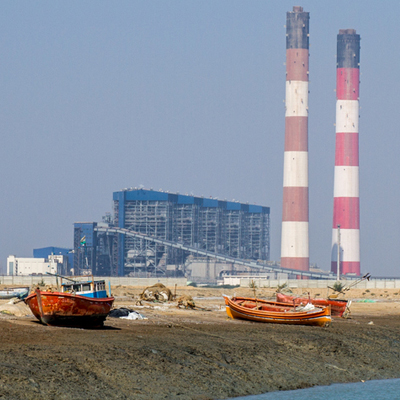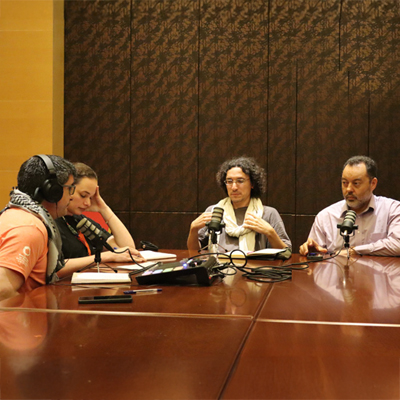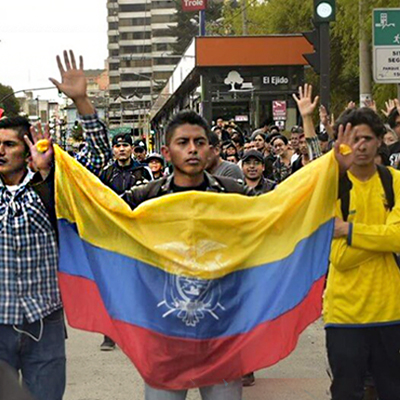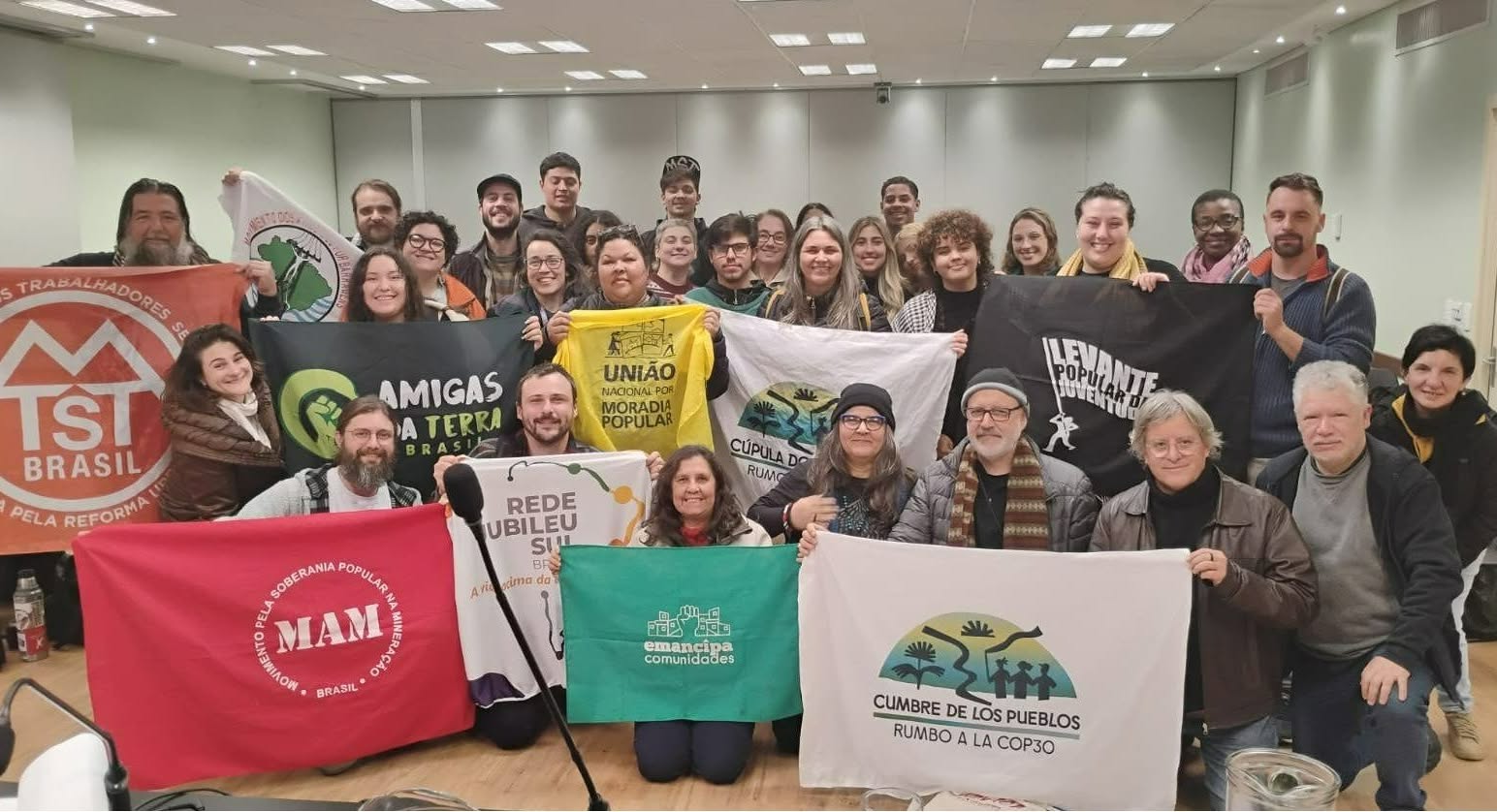“We are in a hurry for concrete and real actions, because it is our dreams which are being shattered, our families dismembered, victimized by this racist project”
An analysis of corporate, patriarchal and racist structures in past and present Brazil, and the path to a different future
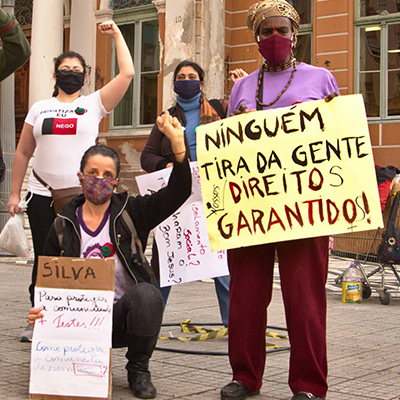 Photo by Alass Deriva. "Mobilization in Porto Alegre in defense of our lives, our territories, our rights, against the ongoing genocide".
Photo by Alass Deriva. "Mobilization in Porto Alegre in defense of our lives, our territories, our rights, against the ongoing genocide".
One month after the murder of João Alberto Silveira Freitas by the security guards hired by Carrefour supermarkets in Porto Alegre, Brazil, Patrícia Gonçalves, member of the Board of Directors of Friends of the Earth Brazil and activist in the Front in Defense of Quilombola Territories in Rio Grande do Sul, analyzes the measures taken by the company and the Justice. She defends a change in paradigm in the social tissue regarding black communities in Brazil.
On December 19th, 2020, a month passed since the terrible crime committed against João Alberto. That episode is a reflex of the structural and institutional racism we have in Brazil. Beto, as he was known, was brutally beaten to death by the private security guards of the supermarket chain Carrefour and by the military police.
In order to analyze this cruel and racist case, we talked to Patrícia Gonçalves. The crime occurred one day before the day of black awareness in Porto Alegre, one of the most segregated cities in Brazil. In the same week people were celebrating the election of black town councilors in the city, an unprecedented fact. Patrícia says that “People were happy with the election of the black councilors and also with the gender issue, for many women were elected in Porto Alegre and in several cities in Brazil. We are moving towards a transformation of those spaces, which is really necessary. And while we were celebrating, racism came to reaffirm the condition of black people, of non-white people in Brazil.”
João Alberto’s case made a great impact and caused a national mobilization due to the similarity with the murder of George Floyd in United States (on May 25th, 2020, Floyd was strangled by a white policeman who kneeled on his neck when approaching him in Minneapolis, USA), having a great impact in many countries with the campaing “Black Lives Matter.” João Alberto’s case had great repercussion, mainly because it exemplifies the everyday reality of black men and women in Brazil.
“This is our everyday life. We live in a country which does not acknowledge our humanity, which does not acknowledge us as a powerful force of social transformation. We survive the huge project of extermination, genocide and epistemicide. In Brazil, besides slavery, colonization, for instance, financed policies to promote European immigration that projected that in 100 years the population would be whiter, with the arrival of that immigration, and then it would become a civilized population. Public money was invested in it; that idea was defended and, as a consequence, there were actions of even greater deterritorialization of our original peoples and the black peoples who were here due to that logic which believes in only one model of thought through the white bodies of the West; that it is a correct and civilized world. And we survived that! In an ingenuous and strategic way, we survived that”, Patrícia completes.
That is not an isolated episode. Carrefour chain has a very problematic history of cases of physical aggression and violation of rights all over the Brazilian territory. Patrícia describes some examples: “We have the case of an employee who, after receiving a racist treatment from her workmates, denounced it, and the company fired her as a response. There is also the case of an employee who died at work and the attitude of the company was to go on with their activities as if nothing had happened, hiding the body without any dignity. The black body does not receive any dignity from the company that used its labor for a long time. There are cases of clients who are followed, suffer violence and cannot walk with dignity in the establishments of that chain of supermarkets because they are always seen as suspects and suffer violence. And now the case of João Alberto, who was brutally murdered.”
Besides the Carrefour case, other chains in the food sector are violators of rights in Brazil. In Porto Alegre there are other cases involving the territorial dispute with the quilombola communities. For example, the Walmart chain, which is a corporation that exploits the workforce of employees, tries to deterritorialize the community Quilombo dos Machado. Patrícia tells the story of that community, and describes how the community feels the impacts of institutional racism: “The community has a life history that comes from long before the arrival of Walmart, and despite that our juridical system cannot and does not want to understand it. Presently, the community needs to invest a lot of time and energy in a major dispute to guarantee that justice be done. And for us, it is very hard to pass through that juridical sieve, to manage to develop a process that grants a result to our fight, our construction and our worldview. It is extremely complex and difficult for a quilombola community to be assessed and analyzed by this system. But the rule we have is that ownership of the land is worth more than people, and that is why it is necessary to face that situation. And also to be able to, in different ways and with diverse narratives, fight for what is a quilombola territory, what is the constitution of a possible world in those territories. The system itself has denied other spacialities and put those people in different spaces, where they were forced to build all their logic of territoriality [in order to keep their quilombola culture in spite of the space limits assigned].”
Gonçalves adds: That is why it is necessary to confront those companies and this racist juridical system with our logic. This is a system which sees us as invaders, as occupiers of a space. It cannot understand that we are just operating in a project to retake the territory and retake what is ours by right due to the consequences of a series of crimes that it has been committing since the formation of Brazil against the black bodies and the forms of territorialization of black spaces. A system that has difficulty understanding what the logic of retaking means, of reconquering what is ours by right. And that is the experience we are living in Porto Alegre, where there are 8 recognized quilombola communities and one in process of recognition, and those communities are retelling the story, retaking the space and affirming themselves before a system which is blind to recognize that diversity and which is racist when operating against that diversity.
The fight in defense of the regularization of quilombola and indigenous territories is urgent. Patrícia explains furthermore what they understand by retaking and the intersections between the quilombola and the indigenous fights: “The logic of retaking is a learning process which is born from the relationship with the original peoples, who follow that orientation of reconquering their space and retaking what is theirs by right, for inhabiting all the Brazilian territory. And when the European colonization arrived, expropriating those communities, sending them away, dismembering them, for those reasons they come to demand that debt with the Brazilian State, which has never paid it in its integrity. Facing the inactivity of the State, indigenous and quilombola communities get together and retake their territories.”
The dispute is for the prevailing morality
Like institutional racism, structural racism is also responsible for molding the forms of violence against black bodies: “This racist juridical system sees our territories as the place of bandits, the place of traffic, the place of vulgar people, of people who can suffer violence. It also sees our territories as the bodies of women open to violation, women who may be abused by the system. It is a composition of the racist and patriarchal system which operates very well unifying logics of oppression —oppression against our territories. Besides the physical aggression which generates deterritorialization, there is also a misconfiguration of those territories, a narrative that seeks to reinforce the idea they are spaces without potential and without qualities, which qualifies the violating model in the territorial dispute because, in Brazil, the territorial dispute is not only a legal issue, but also a moral one. Then, it is justified to expel and attack what is disqualified. There is a logic that black bodies, indigenous bodies and women are not characterized as intelligent people, with potential, people who are protagonists of their own histories. They are seen as people who need to be tutored in order to follow their lives in plenitude. Therefore, we also need to fight that; that way, we will be fighting a moral issue that sometimes has justified attitudes of violation.”
Due to that, Patrícia ponders that it is necessary to see in those territories their diversities, potentialities and diversified and sophisticated ways those territories operate and organize their fight. “From the ground of territories, we can perceive what is happening, a way to act considering the diversity and complexity that the game of life demands from us. We know that living demands courage, and living an anti-racist fight demands much more courage, much more daring, much more positioning.”
The environmentalist and antiracist activist also makes a call for listening: “We think that any group or political organization which is willing to add to this fight needs, before anything, to practice a sensitive listening towards what is being said from the ground of territory. Listening to what people are experiencing, the oppression and violence, what those people judge necessary to confront and to do, what centuries-old techniques they are using to handle life. It is no longer possible for us as left-wing people not to listen. It is no longer possible to believe that it is necessary to act, placing western logic inside our territories as if people who live the daily fights did not understand what is happening. People do understand. Every day they make complex and difficult choices. Therefore, as left-wing people, we need to practice listening, sensitivity, solidarity with those groups, with those articulations, in order to boost the fight.”
To think about possible paths to transform the present model of society into an anti-racist society, Patrícia says that: “We need to take concrete and real measures in accordance with historical and humanitarian reparations, because they are crimes systematically committed against our humanities. Then the attitude [of Carrefour] of just apologizing and paying millions to advertise on primetime television to try to clean the company’s name does not repair those crimes. Apologizing and saying they do not agree with those practices does not promote the transformative actions necessary for an anti-racist attitude. We are in a hurry for concrete and real actions because it is our people who are being systematically murdered, it is our dreams which are shattered, our families dismembered, victimized by this racist project that has operated for more than 5 centuries in Brazil.
Friends of the Earth Brazil repudiates the violence and the murder of João Alberto, as well as those of Marielle Franco, Claudia Ferreira, the Miguel boy, of black people who are incarcerated in large groups inside the logic that has been operating for centuries in this country and that criminalizes racialized bodies. “We believe that many are responsible for exterminating black dreams in Brazil. Many were the hands that beat João Alberto and executed him besides the private security guards from Carrefour and the military police. They were all the hands that agree with this racist system. And those hands keep on violating the memories of those bodies, because those people are violated and receive a treatment that judges them in their deaths and condemns them as criminals. Then, the treatment Brazil has been giving black and indigenous people is very cruel. Each day it becomes more dangerous to be a black person in Brazil. That is why we need solidarity; we need anti-racist actions so that those crimes stop happening. Friends of the Earth Brazil place themselves beside those territories in their fights, and offer themselves as companions of resistance. Here we place a bet which has as its goal the victory of life, with all it is able to bring in terms of potentiality, diversity, strength, and we believe we are taking steps in a beautiful walk that materializes a construction of trust, with technical support, with a political partnership for the anti-racist transformation.”



